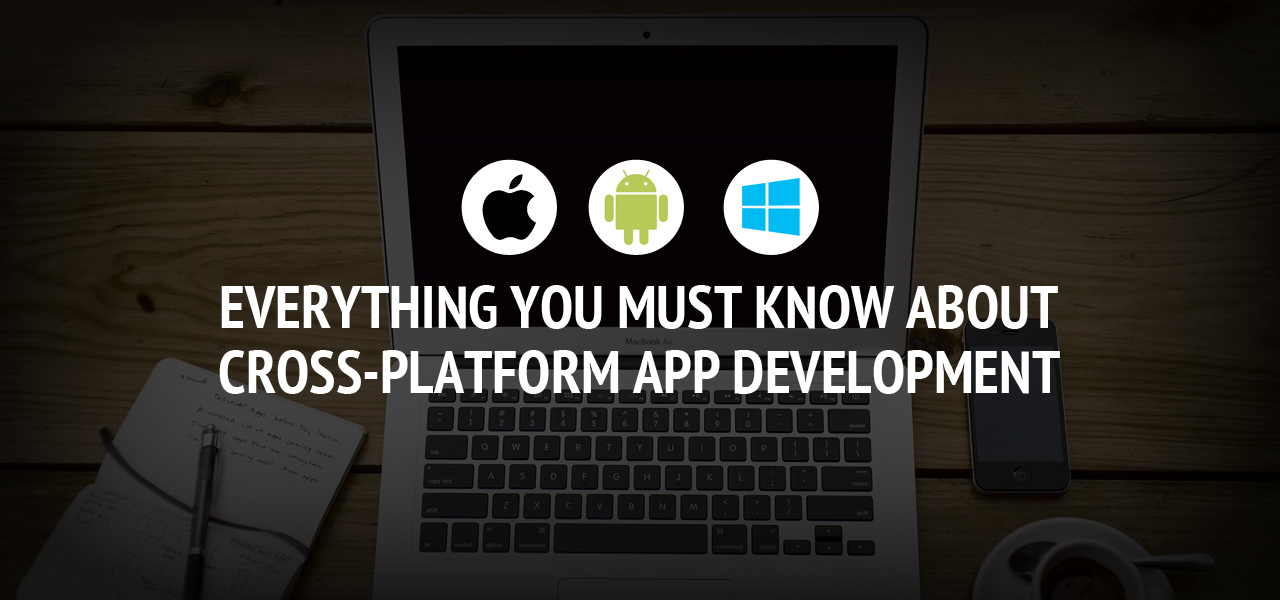Top 5 Hybrid Mobile Application Frameworks

Native mobile application development takes time and costs. It won’t be wrong to say -- Native mobile application development is a big challenge. Even Though, native mobile app development gives full control and better management, still, it struggles with IDEs and SDKs. Similarly, it lacks room to produce new apps.
In short, developers should be well-adapted to understand different platforms and their nuances to produce good user-experience while working on native mobile app development.
On the other hand, hybrid mobile app development is totally different than the native mobile app development. It isn’t a one-size-fit-all, but with hybrid mobile framework, you can use a single codebase across multiple platforms.
Following are the top 5 Hybrid mobile application frameworks with pros and cons, which ensure creation of highly responsive apps without any difficulty.
So,
Let’s get started!!!
1- jQuery Mobile
Instead of creating unique apps for each mobile device or OS, the jQuery Mobile framework lets you to design a single well-branded responsive websites and apps that work on all popular smartphones, tablets and desktop platforms.
All-in-all, jQuery Mobile framework takes ‘Write Less, Do More’ mantra to new heights.
Pros:
- Stable work environment
- You can create your own themes without needing any coding help with ThemeRoller.
- Since, it is based on HTML5 & JavaScript, that’s why; development is very easier with jQuery Mobile.
- It helps in creating on client product pages and other custom pages with zero difficulty.
Cons:
- jQuery Mobile works well for simpler designs but for custom designs, it demands extra coding.
- Custom HTML themes will incur problems with CSS related issues.
.NET integration with jQuery Mobile is the big trouble, especially with update panels.
2- React Native
React Native is a Facebook framework that integrates React approach to flawless mobile apps development. Well, if you’re good at React, using native will be a piece-of-cake for you. Although, it is a powerful framework but it’s a time-taking. Due to limited UI and native features, it requires extra coding time.
Numerous social networking apps use React Native i.e. Instagram, Facebook. It shows that React Native is highly effective and highly empowering framework, if only you have a team of experts and professional developers.
Needless to say: From startups to big companies look for professional mobile app company to create great apps using React Native that too - easily and proactively.
Pros:
- Quick to build
- One framework for multiple platforms
- Hot reloading
- Fast applications
- Minimalist UI
Cons:
- Smooth less Navigation.
- Lack of Custom Modules.
- Longer development cycles as compared to competing frameworks.
- Extra coding required to fix and maintain third-party components.
3- Flutter
Flutter is Google's UI toolkit used for making natively compiled and beautiful apps for mobile, web and desktop right from a single codebase. It is incredible fast tool as it can turn an idea into an app into a few seconds. It comes with hot reload feature which helps in quick experimentation, responsive UIs building, and bugs fixing. It has quick ship features which focus on native end-user experiences.
Flutter comprises on layered architecture functionality that helps in full customization for quick rendering and flexible designs.
Likewise, it comes with widgets which incorporate all critical platform differences i.e. navigation, scrolling, fonts and icons. It is the reason that Flutter offers full native performance on both Android and iOS.
Pros:
- Less Code
- Most Suitable for MVP
- Cross-Platform Development
- Easy-to-Set up
- Hot Reload
- Widgets
Cons:
- Mobile Only
- Limited Libraries
- Continuous Integration
- Limited Support for TV
4- Framework7
Framework7 is an open-source and free framework for developing mobile, desktop and web applications with native feel and look. Also, it is used as a prototyping tool to display working app prototype as quickly as possible. When it is paired with Electron and NW.js, it lets you create native desktop apps.
Rest assured: creating apps with Framework7 is as easy as developing a website. In addition to Vanilla JavaScript library, Framework7 consists of Vue.js and React component to bring components-syntax, data bindings, and structured data with power and simplicity of Vue.js & React.
Framework7 comprises several handy sets of UI elements and widgets i.e. dialogs, action sheets, popovers, tabs, side panels, pop-ups, pre-loader, layout grids, and form elements etc.....
Pros:
- Independent from any 3rd party library.
- Used with React and Angular framework.
- Supports faster development via Bower.
- Ease up development of iOS and Android apps without technical know-how.
Cons:
- Limited support for platforms i.e. iOS and Android.
- Limited online community support.
- Mediocre documentation.
- Not recommended framework for users who don't like HTML5 (mark-up based) solutions.
5- Ionic
Ionic was created to build an Angular-based system to outdo jQuery mobile frameworks and to introduce a modern approach to mobile hybrid apps.
Undeniably. Ionic is the most powerful and popular framework today with thousands of contributors across the globe, and they don't leave any rock unturned in providing any sort of plugin for any purpose. At the same time, it can add native features from Facebook integration to in-app purchases and so much more.
Ionic 4, the recent version, introduced contains restyled UI elements and redefined system to handle internet routing without mistakes.
Now, Ionic with its pro services and enterprise support --- assisting developers across the globe to integrate any specific feature in correct ways and offering quick and special plugins support by Ionic community.
Pros:
- Single Codebase across various platforms
- Testing convenience
- Availability of plugins
- Integration of advanced technologies with ease of use
- Quick prototyping and extensive choice of UI elements.
Cons:
- Zero hot reloading
- Security Issues
- Plug-in dependent system
- Problematic when it comes to development of native apps.
Conclusion - Top 5 Hybrid Mobile Application Frameworks in 2019
Finally,
In this post, we discussed very best and top 5 hybrid mobile apps frameworks in 2019. From jQuery Mobile, React Native to Flutter, Framework7 and Ionic, each framework has distinct and discrete capabilities. Likewise, they have their own pros and cons.
Anyways, if you have to create a hybrid app for your business, you must try one of the frameworks discussed here and you’ll see yourself helping your end-users with best and matchless services.
About The Author
Related Blog
View All-
Everything You Must Know about Cross-platform App Development
Today the mobile app industry has come up with several notable innovations compared to past years. As a myriad of apps are being created and developed every new day, the global mobile application market is reaching new heights. Mobile phones are a significant ...
-
Tips for Creating the Best Mobile App UX Design
In the fast-paced digital age we live in, mobile apps have become an integral part of our daily lives. Whether it's for social networking, online shopping, productivity, or entertainment, mobile apps have revolutionized the way we interact with technology. ...







